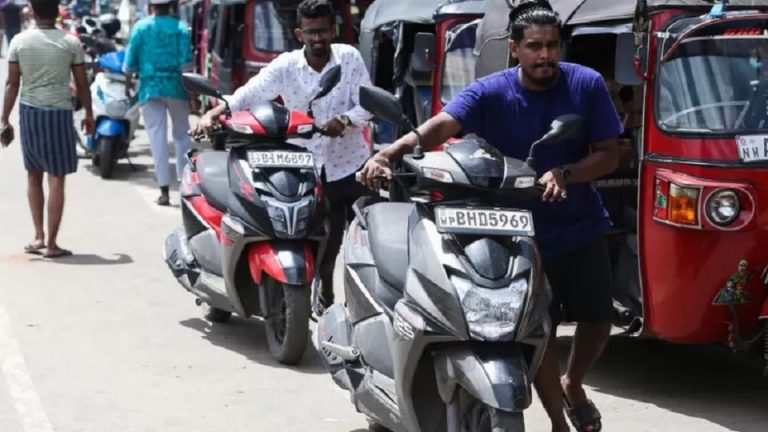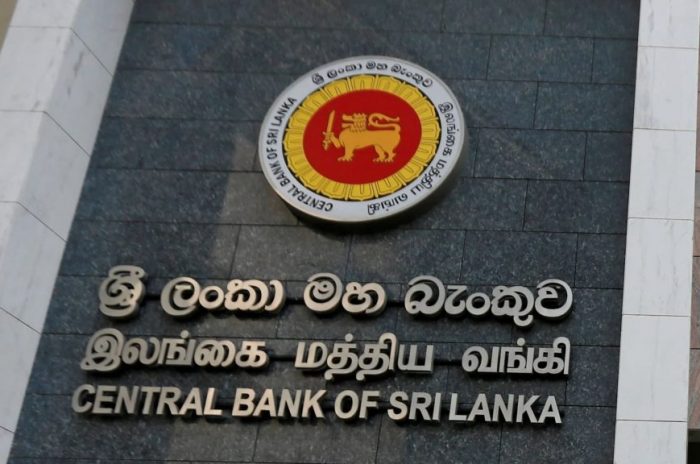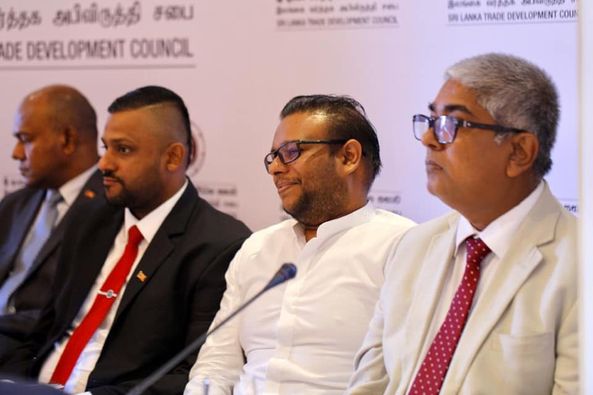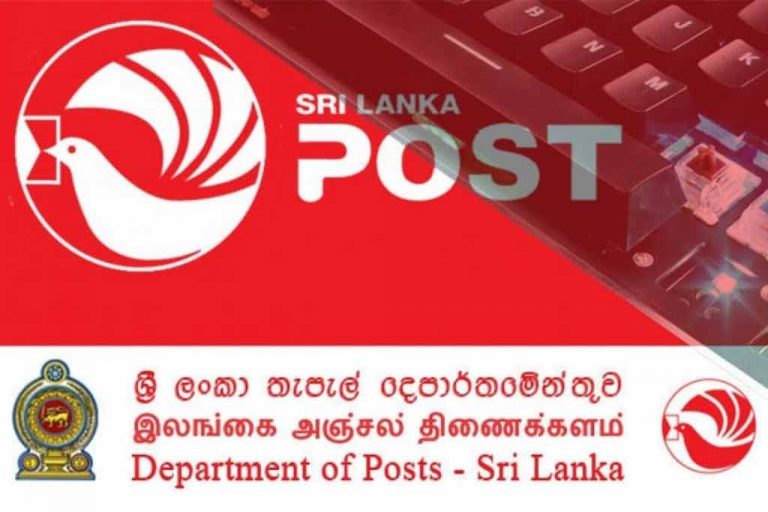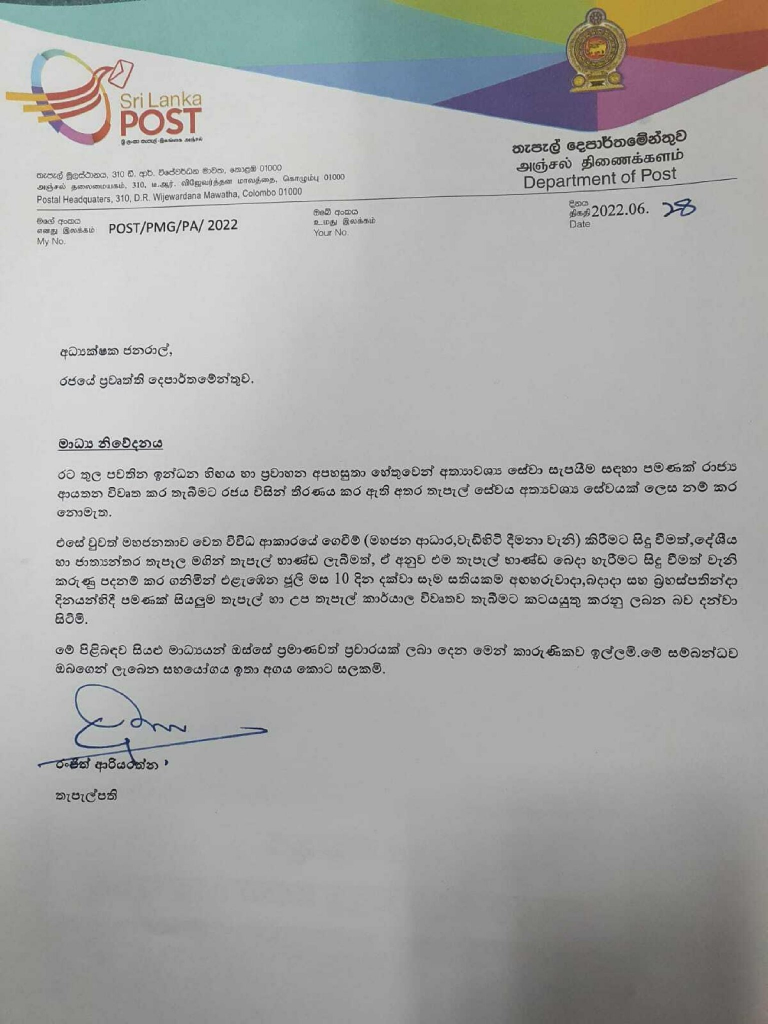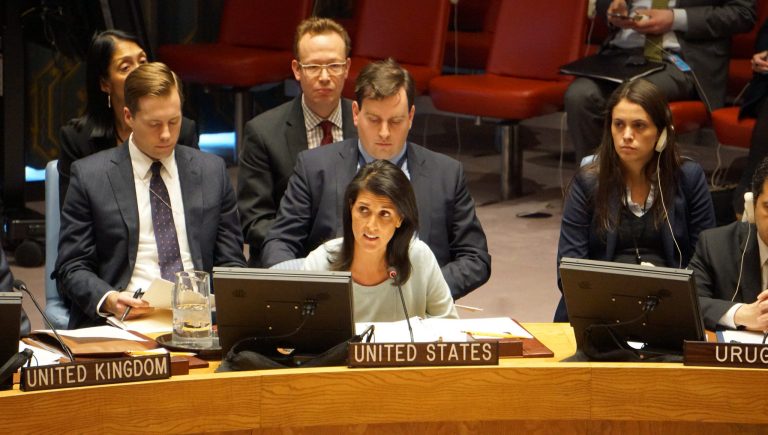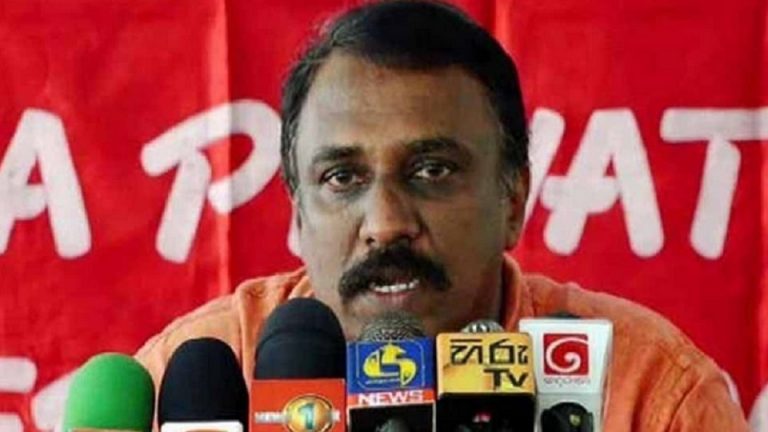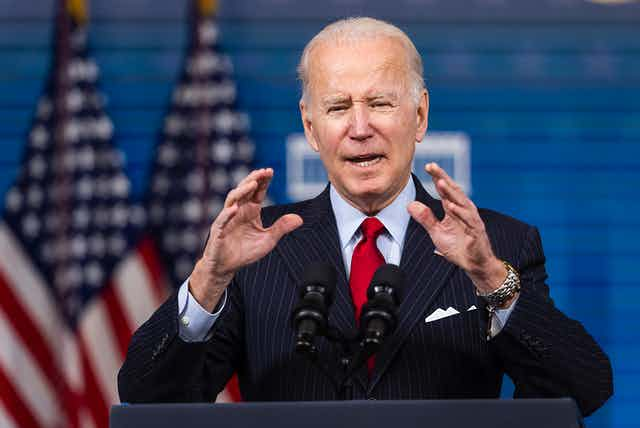Sri Lanka has suspended sales of fuel for non-essential vehicles as it faces its worst economic crisis in decades.
For the next two weeks, only buses, trains and vehicles used for medical services and transporting food will be allowed to fill up with fuel.
Schools in urban areas have shut, while officials have told the country’s 22 million residents to work from home.
The South Asian nation is in talks over a bailout deal as it struggles to pay for imports such as fuel and food.
Sri Lanka is the first country to take the drastic step in halting sales of fuel to ordinary people “since the 1970s oil crisis, when fuel was rationed in the US and Europe and speed limits introduced to reduce demand”, Nathan Piper, head of oil and gas research at Investec, told the BBC.
He said the ban underlined the steep rise in oil pricing and limited foreign exchange reserves in Sri Lanka.
Many of the island’s residents don’t know how they will cope without fuel. There have been long queues at filling stations across Sri Lanka for months.
Chinthaka Kumara, a 29-year-old taxi driver in Colombo, thought the ban would “create more problems for people”.
“I’m a daily wage earner. I’ve been in this queue for three days and I don’t know when we will get petrol,” he told BBC Sinhala.
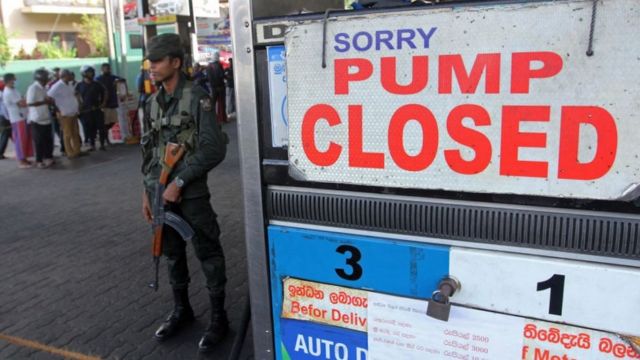
Drivers have been asked to go home, with tokens distributed aimed at rationing scarce fuel stocks. Some kept queuing, but others couldn’t.
“I was in a queue for two days. I got a token – number 11 – but I don’t know when I will get fuel,” S Wijetunga, a 52-year-old private sector executive, told the BBC.
“I need to go to the office now, so I have no option but to leave my vehicle here and go in a three-wheeler.”
Kenat, a motorised rickshaw driver in the Colombo suburb of Kotahena, said people like him were being “destroyed”.
“Our family used to have three meals a day. Now we eat only twice a day. If this continues, it will come down to one meal,” he told BBC Tamil.
‘Severe economic crisis’
With an economy hit hard by the pandemic, rising energy prices and populist tax cuts, Sri Lanka lacks enough foreign currency to pay for imports of essential goods.
Acute shortages of fuel, food and medicines have helped to push the cost of living to record highs in the country, where many people rely on motor vehicles for their livelihoods.
On Monday, the government said it would ban private vehicles from buying petrol and diesel until 10 July.
Cabinet spokesperson Bandula Gunewardena said Sri Lanka had “never faced such a severe economic crisis in its history”.
The cash-strapped country has also sent officials to the major energy producers Russia and Qatar in a bid to secure cheap oil supplies.
Over the weekend, officials said the country had only 9,000 tonnes of diesel and 6,000 tonnes of petrol to fuel essential services in the coming days.
It has been estimated that the stocks would last for less than a week under regular demand.
“We are doing everything we can to get new stocks, but we don’t know when that will be,” power and energy minister Kanchana Wijesekera told reporters on Sunday.
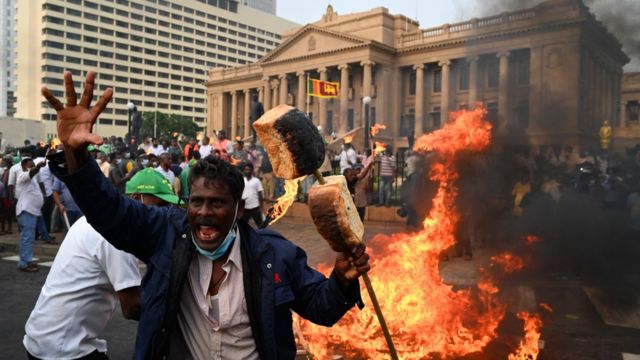
In May, the country defaulted on its debts with international lenders for the first time in its history. That followed weeks of protests against President Gotabaya Rajapaksa’s government. His brother Mahinda quit as prime minister, but the president is still under pressure to resign.
“The government seems to take no action at all,” Kannan, another driver seeking fuel in the capital, told BBC Tamil.
“They are asking us to be patient. They say they don’t have dollars. But I ask the government – who is responsible for this?”
He suggested “educated youngsters” should lead the country instead.
Last week, an International Monetary Fund team arrived in Sri Lanka for talks over a $3bn (£2.4bn) bailout deal.
The government is also seeking assistance from India and China to import essential items. New Prime Minister Ranil Wickremesinghe said earlier this month the country needed at least $5bn over the next six months to pay for essential goods such as food, fuel and fertiliser.
In recent weeks, ministers also called on farmers to grow more rice and gave government officials an extra day off a week to grow food, amid fears of shortages.
The government blames the crisis on the Covid pandemic, which affected Sri Lanka’s tourist trade – one of its biggest foreign currency earners.
But many experts say mismanagement is the main cause of the economic collapse.
Sri Lanka’s foreign currency reserves dwindled to almost nothing after years during which it imported much more than it exported and racked up huge debts with China on controversial infrastructure projects.
When Sri Lanka’s foreign currency shortages became a serious problem in early 2021, the government tried to limit the outflow by banning imports of chemical fertiliser, telling farmers to use locally sourced organic fertilisers instead.
This led to widespread crop failure. Sri Lanka had to supplement its food stocks from abroad, which made its foreign currency shortage even worse.

